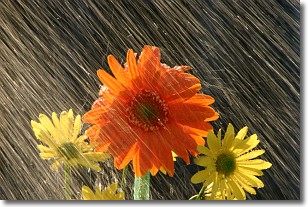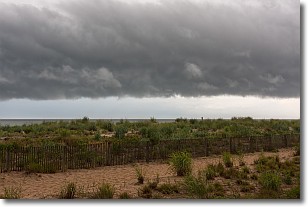Weather Alert in Virginia
Flood Advisory issued June 16 at 11:52PM EDT until June 17 at 8:00AM EDT by NWS Blacksburg VA
AREAS AFFECTED: Botetourt, VA; Craig, VA
DESCRIPTION: Heavy rain from thunderstorms fell between 4:00 PM and 6:00 PM Monday evening. Upwards of 4 inches of rain fell along the Botetourt, Craig County line between New Castle and Fincastle, VA. * WHAT...Flooding caused by excessive rainfall has occurred. * WHERE...Portions of southwest and west central Virginia, including the following counties, in southwest Virginia, Craig. In west central Virginia, Botetourt. Along State Route 606 between New Castle and Fincastle. * WHEN...Until 800 AM EDT Tuesday. * IMPACTS...The North Fork of Catawba Creek has flooded with water over road. Homes are cutoff from egress, with home owners sheltering in place until the road can be reopened. * ADDITIONAL DETAILS... - At 1141 PM EDT, emergency management reported water covering the road with a high likelihood the road has been washed out in places near the Botetourt, Craig County line. Flooding is ongoing, but water levels should gradually recede. Upwards of 4 inches of rain have fallen near the county line. - This includes the following streams and drainages... Dry Branch, Catawba Creek, Barbours Creek, Lees Creek, Stone Coal Creek, Craig Creek, Mill Creek and North Fork Catawba Creek. Flooding impacts will continue, but no additional rainfall is expected. - Some locations that will experience flooding include... mainly rural areas of East Central Craig and West Central Botetourt Counties - http://www.weather.gov/safety/flood
INSTRUCTION: Be especially cautious at night when it is harder to recognize the dangers of flooding. Be aware of your surroundings and do not drive on flooded roads.
Want more detail? Get the Complete 7 Day and Night Detailed Forecast!
Current U.S. National Radar--Current
The Current National Weather Radar is shown below with a UTC Time (subtract 5 hours from UTC to get Eastern Time).

National Weather Forecast--Current
The Current National Weather Forecast and National Weather Map are shown below.

National Weather Forecast for Tomorrow
Tomorrow National Weather Forecast and Tomorrow National Weather Map are show below.

North America Water Vapor (Moisture)
This map shows recent moisture content over North America. Bright and colored areas show high moisture (ie, clouds); brown indicates very little moisture present; black indicates no moisture.

Weather Topic: What is Precipitation?
Home - Education - Precipitation - Precipitation
 Next Topic: Rain
Next Topic: Rain
Precipitation can refer to many different forms of water that
may fall from clouds. Precipitation occurs after a cloud has become saturated to
the point where its water particles are more dense than the air below the cloud.
In most cases, precipitation will reach the ground, but it is not uncommon for
precipitation to evaporate before it reaches the earth's surface.
When precipitation evaporates before it contacts the ground it is called Virga.
Graupel, hail, sleet, rain, drizzle, and snow are forms of precipitation, but fog
and mist are not considered precipitation because the water vapor which
constitutes them isn't dense enough to fall to the ground.
Next Topic: Rain
Weather Topic: What are Shelf Clouds?
Home - Education - Cloud Types - Shelf Clouds
 Next Topic: Sleet
Next Topic: Sleet
A shelf cloud is similar to a wall cloud, but forms at the front
of a storm cloud, instead of at the rear, where wall clouds form.
A shelf cloud is caused by a series of events set into motion by the advancing
storm; first, cool air settles along the ground where precipitation has just fallen.
As the cool air is brought in, the warmer air is displaced, and rises above it,
because it is less dense. When the warmer air reaches the bottom of the storm cloud,
it begins to cool again, and the resulting condensation is a visible shelf cloud.
Next Topic: Sleet
Current conditions powered by WeatherAPI.com




